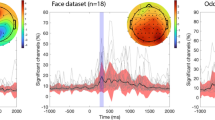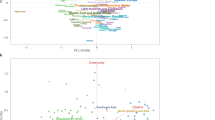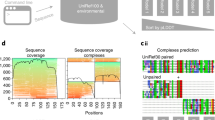Abstract
IN proposing the method referred to by Dijkstra, I tried to stress its convenience rather than its extreme accuracy and the examples which I gave were chosen to show that some lack of agreement might be expected in comparing areas determined by this method with areas determined by other methods. However, as Dijkstra points out, results obtained with other methods are less reproducible. Slight differences in the way in which triangles are drawn and small inaccuracies in cutting out curves can give rise to appreciable differences in estimated area. It is also more difficult to measure peak widths at half height accurately than it is to measure retention times. Furthermore, in the case of overlapping peaks it is frequently impossible to get a good estimate of the individual areas by other methods whereas the retention times and peak heights can still be measured and appropriate corrections for peak height applied if necessary.
This is a preview of subscription content, access via your institution
Access options
Subscribe to this journal
Receive 51 print issues and online access
$199.00 per year
only $3.90 per issue
Buy this article
- Purchase on Springer Link
- Instant access to full article PDF
Prices may be subject to local taxes which are calculated during checkout
Similar content being viewed by others
Author information
Authors and Affiliations
Rights and permissions
About this article
Cite this article
CARROLL, K. Quantitative Estimation of Peak Areas in Gas-Liquid Chromatography. Nature 192, 965–966 (1961). https://doi.org/10.1038/192965b0
Issue Date:
DOI: https://doi.org/10.1038/192965b0
Comments
By submitting a comment you agree to abide by our Terms and Community Guidelines. If you find something abusive or that does not comply with our terms or guidelines please flag it as inappropriate.



